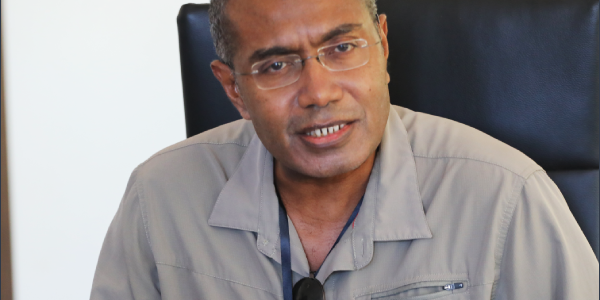$30m budget rescue package from China
The leader of independent MPs in Solomon Islands is demanding the country’s prime minister provide more information about a budget rescue package from China.
Early this week, Solomon Islands Prime Minister Jeremiah Manele announced that China would hand more than $30 million in “budgetary support” to the Pacific Island nation, which is grappling with severe financial strains.
But China’s government has not yet publicly announced or acknowledged the assistance and independent MP Peter Kenilorea Jr told the ABC Mr Manele needed to provide basic information about what had been agreed.
“If it’s a loan then we could go over our borrowing limit for Solomon Islands,” he told the ABC.
“If it’s a grant then I think that’s a shift in the way China does business, because that’s not what they usually do.”
China typically prefers to deliver development assistance in the form of concessional loans or through funding projects which are usually delivered by Chinese companies.
Mr Kenilorea Jr has been a fierce critic of the way Mr Manele and his predecessor Manasseh Sogavare rapidly built close ties with China.
He said China typically preferred loans because they handed it “leverage” – but if Beijing had made an exception for Solomon Islands, other Pacific Island nations would quickly take notice.
“I think we could see other Pacific nations queuing up to ask for the same thing,” he said.
“Solomon Islands’ budget is in bad shape, so it is not surprising to see the government asking for this help. But we want to understand exactly what has been offered and accepted.”
Pacific analyst Alexandre Dayant from the Lowy Institute said the language used by Mr Manele suggested that the money was a direct grant.
“What’s interesting to see here is the magnitude of this grant,” he said.
“Will we see China continue in this direction? I think it is too early to tell.”
Mr Dayant said Beijing had already shifted the way it operated in the Pacific and had been “moving away” from making large loans in the Pacific to fund mega-projects.
But he said while Beijing had previously funded a series of contentious programs in Solomon Islands which funneled money into local constituencies, it was “unusual” for it to hand over money simply to prop up budgets.
“China is good at marketing at aid in the Pacific (and) … the problem with financing like this, is that you can’t put Chinese flags on it,” he said.
“At this stage it looks like a one-off transfer of funding. It remains to be seen if China continues in this direction.”
Australia remains by far the largest provider of development assistance to Solomon Islands, and has made a series of direct budget commitments to Honiara in recent years — including $25 million in election support, $16.7 million for the Pacific Games and a further $7 million announced earlier this year.
But in his press release Mr Manele stressed that “one bilateral partner cannot shoulder all the country’s development goals and priorities.”
“As a country we need all our bilateral and multilateral partners,” he said.
Heather Murphy from the Development Intelligence Lab said the announcement seemed to represent a “broadening of the [People’s Republic of China] strategic toolkit in Solomon Islands.”
“Sadly, it turns direct budget support into a new arena for the strategic competition in the Pacific,” she said.
“Whilst capitals will focus on the PRC’s geostrategic intentions, an equally important question is how this money will be used to deliver services to communities? That is a question for the people of Solomon Islands to judge, and ask of their leaders.”
Mr Manele’s announcement came as he joins a host of Pacific leaders in Tokyo for a high-profile meeting with Japanese Prime Minister Fumio Kishida and other top officials.
But leaders gathered first for a meeting on the ongoing unrest in the French Pacific territory of New Caledonia, where tensions have flared between pro-independence Kanaks and French loyalists.
Earlier this month French police shot and killed an alleged gunman, bringing the death toll from the chaos to 10.
Senior officials said that the Pacific Islands Forum had agreed to send a “mission” to visit New Caledonia, although it was not immediately clear who would be part of it, or whether the group had secured agreement from French authorities.









